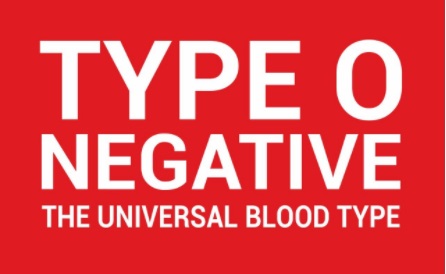Although there seems to be no apparent evolutionary advantage for one blood group over another, their distribution is markedly uneven. How did one blood group become more prevalent than others?
Humans have several blood types, or blood groups, which differ according to the types of sugar molecules present on the surface of the respective red blood cells. Red blood cells that present sugar molecules of a certain type are termed Type A blood cells, while red blood cells that present another type of sugar molecule are termed Type B blood cells. Red blood cells that display both types of sugar molecules on their surface are termed type AB blood cells, while cells that do not display either sugar molecule are termed Type O blood cells.
The human immune system recognizes these sugar molecules and, upon encountering a sugar molecule different from the type regularly present in the body, treats it as a foreign element that should be attacked. For example, if a person with Type O blood receives a type A blood donation, his body will recognize the sugar molecules of type A blood as foreign, consider the donor red blood cells as invaders and attack them. That is why it is imperative to adjust the donor blood type to the recipient’s blood type.
Read Also: Zelensky says he spoke to Musk, will get more Starlink internet terminals
Blood types are inherited from parents to children by the ABO gene, with one copy being provided by the mother and the other by the father. The ABO gene harbors the instructions for the production of a protein that adds one of the aforementioned sugar molecules to the surface of red blood cells. Slightly different versions of the gene, termed ‘alleles’, will determine whether the blood will be of type A, type B, both or neither.
The prevalence of the different blood types in the population is unequal, and the most common blood type is type O. In certain countries it can be found in about 90 percent of the population, while in other places it will only be present in about a half of the population.
Even if two people have the same blood type, they do not necessarily have the same alleles. There could be many reasons why the protein that adds the sugar molecules is inactive in a person with type O blood. In one person the protein may be too short, while in another it will not function due to a change in its structure that renders it unfunctional. Blood types A and B also have several variants, in all of which the functional protein produces the appropriate sugar molecule. However, slight differences could be present in the gene that harbors the instructions for its production.
Over generations, random mutations – changes in the DNA sequence – occur in our genes. Most of these changes are insignificant, but some can be harmful and a very small fraction can even be beneficial. If the mutations are harmful, they will be unlikely to spread throughout the population and will most likely disappear with time, through the process of natural selection. In contrast, in genes that are not essential for our survival, such as the ABO gene, ‘abnormal’ versions can appear and remain in the population. In such a manner, a large number of different abnormal versions of the gene may appear, all of which will result in type O blood and spread in the population. Although the chances of a mutation occurring specifically in the ABO gene that will be passed onto the next generation is low, the probability that a random mutation will impair a working protein and disrupt its activity is higher than that of a random mutation returning a nonfunctional protein back to functionality. Over time, this process may result in a slightly higher prevalence of O alleles.
The different blood type alleles are passed down from generation to generation, with every person receiving one allele from his mother and another from his father, and they can be either similar or different. Since differences in blood types do not lead to illnesses, people can pass on their genes both in the case that the ABO protein is active and produces blood types B, A or AB, as well as in case it is inactive, producing type O blood. Therefore, there is no evolutionary pressure on a certain variant of the gene to dominate the population. Instead, there is random drift – random changes along the gene that could, over time, lead to a situation in which one allele is more prevalent than others in the population.
This is the probable scenario with type O blood, which became the most common in the human population. It happens in the form of small and random changes that eventually lead towards a certain result, like rolling dice, while rolling it time and again will likely produce a different number every time.
Another possible explanation for the prevalence of Type O blood is that some diseases affect people with certain blood types slightly more than those with other blood types. An example of this is the Malaria disease,
in which the parasite causing the disease is expressed in a weaker manner in people with type O blood. Studies have demonstrated a statistical correlation between blood type and the risk of having a certain disease, but have neither demonstrated the existence of a causative link between the two factors, nor have they suggested a putative mechanism that would link disease prevalence with blood type.






